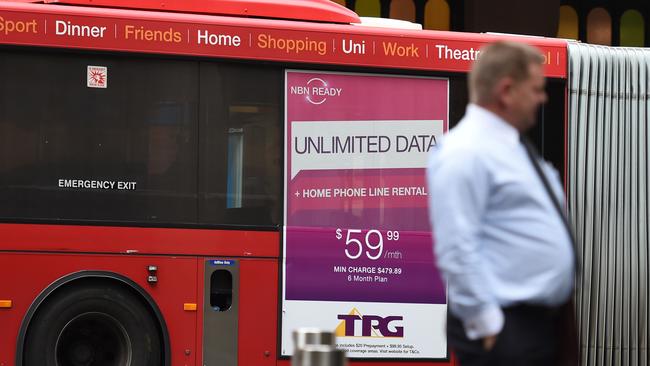Huawei ban hangs over TPG-Vodafone merger
TPG and Vodafone face a battle to overturn objections to their tie-up by the ACCC, which wants the best for consumers.

Inevitably the elephant not yet in the room is the government’s decision to effectively ban Huawei from supplying 5G infrastructure, because that will make it more difficult for both Vodafone and TPG to compete in the mobile market.
In its review expressing preliminary concerns about the merger, the Australian Competition and Consumer Commission noted it “is considering whether, absent the merger, TPG would have the capacity to continually invest in its mobile network in a timely way”.
This point will be hammered home by TPG, arguing that thanks to the government’s Huawei ban it will be forced to build a more expensive network, which will inhibit its plans.
For Vodafone, while it already has an extensive mobile network, installing 5G is a little more complex than simply putting an Ericsson or Nokia box on top of a Huawei network, so its costs will rise.
The point being the ACCC’s dream of a four-player market will be thwarted if the cost of building a new network rules one out.
The watchdog’s concerns are that by merging with Vodafone, TPG would be removed as an independent competitor with its own network, which would likely result in a “substantial lessening” of competition.
“A mobile market with three major players rather than four is likely to lead to higher prices and less innovative plans for mobile customers,” the ACCC’s Rod Sims said.
On the issue of the consumer benefits of a four-player market, Mr Sims has been consistent for many years.
He likes to quote former Telstra boss David Thodey who said in September 2012: “All the data we’ve looked at around the world says three (operators in a market) are very rational from a pricing perspective. Once we get to four or five is when you start to get behaviour that can be aberrant in terms of shareholder value.”
That behaviour of course means better deals for customers.
TPG and Vodafone now jointly own 5G spectrum but in a three-player market they would come to the table with a less aggressive package.
TPG has yet to really roll out a network so the benefit of a four-player market is different strategies and pricing options for consumers’ benefit.
Vodafone has started rolling out its fixed line service and is adding around 6,000 customers a month on its NBN-based service.
TPG is an established fixed-line player with a strong brand name.
The combination of the two would be a powerful one which would clearly threaten Optus.
In mobile Telstra has around 43 per cent market share, Optus 33 per cent and Vodafone 21 per cent.
In NBN-based fixed services Telstra has 55 per cent, TPG 20 per cent, Optus 16 per cent and Vodafone 1.5 per cent.
The Huawei argument will be seen by the ACCC as yet another self-serving attempt by companies in a consolidating industry to justify their stance.
In other words it doesn’t make sense when looked at from a customer, as opposed to a shareholder, benefit.




TPG and Vodafone face a tough battle to overturn the ACCC’s objections to their $15 billion merger, which are based simply on the fact more competitors provide a better market for consumers.